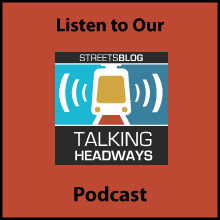The Overhead Wire Daily | July 9th | Access as Policy
July 9, 2024
Two items today (Lincoln Institute | New York Times feat. Economic Renaissance Group) point at an economic growth surge amongst historically strong but weakened midwestern and southeastern industrial cities and counties. The two pieces point at two different potential reasons for the change; industrial policy and finance and a surge in startups that could signal a break from an existing downward trend since the 1980s.
Multiple bills passed over the last few years have financed a trillion dollar industrial policy that has boosted manufacturing and investment. Many of the tax credits and incentives from those bills are beginning to see an impact as cities that were once manufacturing giants see jobs grow from new industries such as renewable energy or energy storage.
At the same time, a surge of new businesses and a slowing out-migration of workers from “left behind” counties have bolstered areas that hadn’t seen a lot of wins this century. Job growth has been four times faster than before and those counties recovered from the pandemic much quicker than from previous shocks. The new business establishment including restaurants, service businesses and even technology startups tend to encourage local optimism.
Researchers caution that they aren’t sure if these job increases and surge in new businesses are durable, but one thing that connects the two seems to be money invested in businesses and people, not austerity policy.
But this also brings something else up that we think about a lot here. Access. In transportation, there’s been a trend over the last few decades to think about giving people more access to the places that they want to go. Not just the ability to move about, but to get to actual desired destinations. In my mind, we can potentially tie the access idea to this current growth in places that have seen stagnating economies.
Before the pandemic, access to capital seemed tied to locations. If you lived in or near a superstar city, you might have access to money or connections that allow you to build and grow a business that perhaps not a lot of people saw value in to start. But with these large scale investments in people, including money from pandemic recovery loans and all of these industrial policy investments, more people seem to be able to access the benefits of investment in new ideas.
I also think we can apply this to transportation policy as well. In the national transportation system the way to get between cities quickly is on an airplane. But those networks are tied to central hubs that distribute to other parts of the country unevenly. Airlines are going to connect large places because that’s where enough people go to fill planes and make a “profit”, but they skip over mutiple destinations in between that could see a benefit from a boost in access.
This is in part why I think we could see an increased interest in high speed rail. It’s not going to connect every place around the country but it could break us away from the superstar city hold on accessibility by bringing more small and mid-sized cities into a symbiotic relationship that benefits all. If we are actually benefiting from industrial policy in this way, perhaps a different transportation policy that brings access to the forefront should be next.
***
For this intro post and more news in your inbox every morning, sign up for a two week free trial of The Overhead Wire Daily, our popular newsletter established in 2006.







